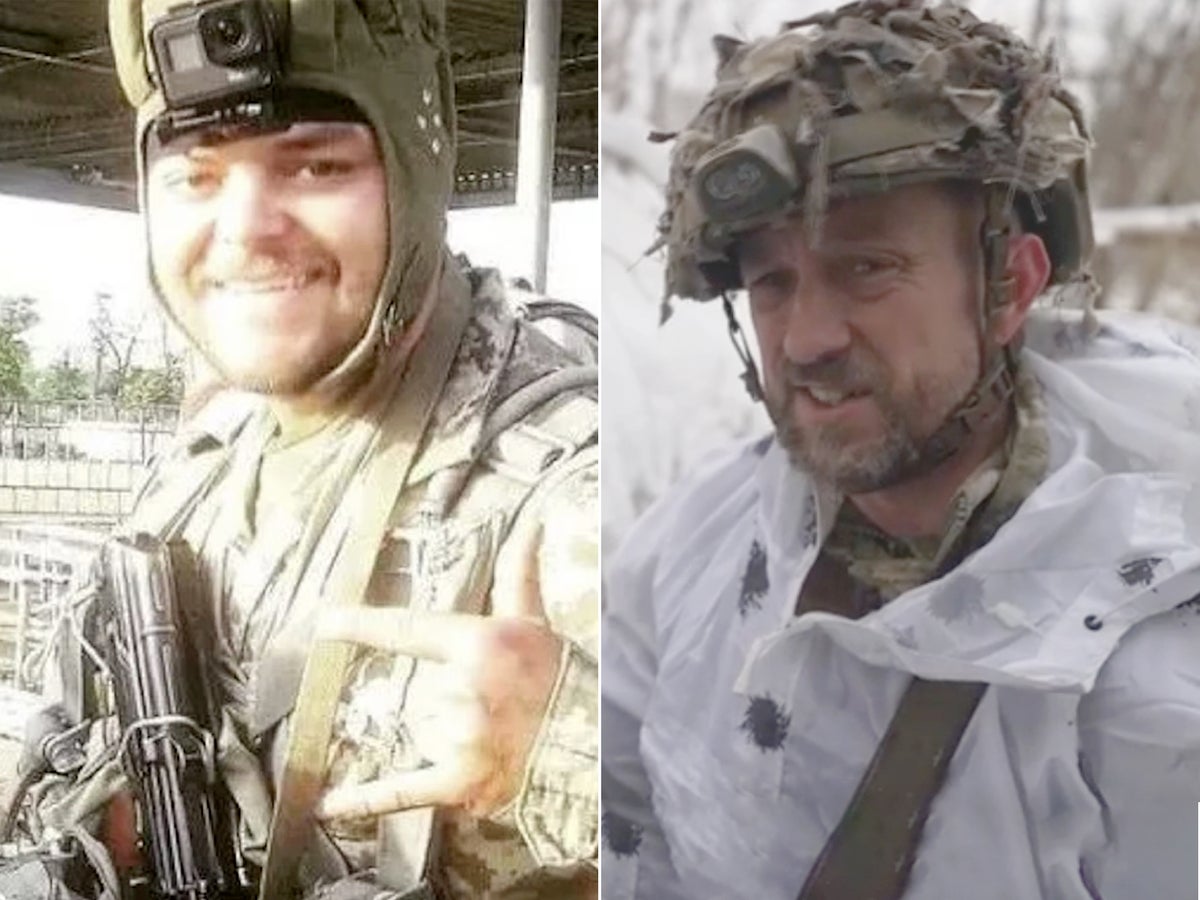
Ministers have demanded the release of two Britons sentenced to death on Thursday by pro-Russia separatists in what has been condemned as a “Soviet-era show trial”.
Moscow was accused of breaching the Geneva Convention over the treatment of Aiden Aslin, 28, and Shaun Pinner, 48, who were captured while fighting with Ukrainian forces.
They will reportedly face a firing squad after being convicted of terrorism in the self-proclaimed Donetsk People’s Republic – but Britain says the pair should be treated as prisoners of war.
Liz Truss, the foreign secretary, condemned the court ruling, saying: “This is a sham judgment with absolutely no legitimacy” and promising to “do everything we can” to support the pair’s families.
There were suggestions the men’s fate could be used by Moscow as a bargaining chip to force Britain to scale back the delivery of weapons to Ukraine.
Robert Jenrick, a former Conservative cabinet minister, who represents the Newark constituency where Mr Aslin lived, urged Ms Truss not to let Russia “get away with it”.
He called for the Russian ambassador to be “summoned to the Foreign Office to account for this most egregious breach of the Geneva Convention”.
“This disgusting Soviet-era style show trial is the latest reminder of the depravity of Putin’s regime,” Mr Jenrick said.
“Contrary to the Kremlin’s propaganda, Aiden Aslin is not a mercenary. He has been living in Ukraine and serving in its armed forces before Russia’s illegal invasion and as a prisoner of war is entitled to protection under the Geneva Convention.”
Appearing in court behind bars, Mr Aslin said: “I was hoping the sentence would be a lot fairer judging the circumstances in which I helped the investigation and also because I surrendered to the Donetsk People’s Republic.
“I wish it could be different, but God will be the one that will judge me when the time comes.”
A third man, Moroccan national Saaudun Brahim, was convicted alongside Mr Aslin and Mr Pinner, in a closed process with only small parts made public through pro-Kremlin media. No comment was immediately available from the Moroccan foreign ministry on his case.
Three days before Russia launched its invasion on 24 February, Vladimir Putin recognised the two entities in Donbas as states independent from Ukraine – and said the conflict was to “liberate” the region.
The British soldiers were both members of regular Ukrainian military units fighting in Mariupol, the southern port city all but destroyed by Vladimir Putin’s assault on the country.
State-run news agency RIA Novosti broadcast footage of the men pleading “guilty” to charges including terrorism, committing a crime as part of a criminal group and forcible seizure of power.
Pro-Russian officials claimed the men’s actions had “led to the deaths and injury of civilians, as well as damage to civilian and social infrastructure”.
The men had one month to appeal against their sentence and, if an appeal was accepted, could receive a life or 25-year prison sentence instead of the death penalty, one said.
Howard Morrison, the UK's independent war crimes advisor to Ukraine, told the broadcaster the sentence had likely been employed for "negotiation purposes".
He told the BBC: "It's very unlikely that it's straightforward. There's almost certainly going to be a subtext in there somewhere and the likelihood is that it is for negotiation purposes.
"In a sense, I hope so, because these men are under the death penalty, and the last thing you want is for that to be implemented.
"But if it is for negotiation, it's difficult to see exactly what the subtext is - because the British government isn't holding any prisoners, it's the Ukrainians who are holding the prisoners."
A No 10 spokesman said: “We are obviously deeply concerned by this. We have said continually that prisoners of war shouldn’t be exploited for political purposes.
“Under the Geneva Convention, prisoners of war are entitled to combatant immunity and they should not be prosecuted for participation in hostilities.
“So we will continue to work with the Ukrainian authorities to try to secure the release of any British nationals who were serving in the Ukrainian armed forces and who are being held as prisoners of war.”
Stephen Doughty, Labour’s Europe spokesperson, said: “It is an outrageous and shameful breach of international law for the Russian regime or its puppets to use an illegitimate court to prosecute legitimate prisoners of war who are entitled to combatant immunity.”
There is a moratorium on the death penalty in Russia, but not in the territory it occupies illegally in eastern Ukraine.







